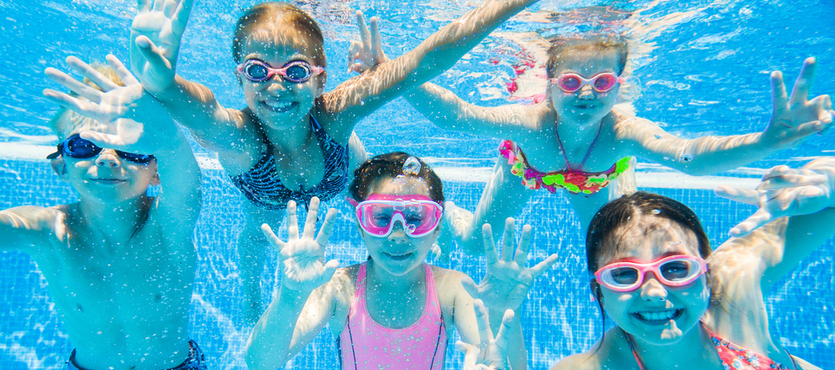Swimming is an amazing activity. Not only are there plenty of physical benefits, but it is also an activity the whole family can enjoy. Like a lot of things in life, swimming comes with its own share of risks. While you are in the water, it is important to know how to be safe. Here are some important safety tips you should be aware of before you dive into the water.
Don’t Swim Alone
The ‘buddy’ system is the best method when it comes to safety during swimming. If you are unsure of your swimming abilities, ask a trusted adult or a friend who is proficient in swimming. Swim buddy ensures that you are accounted for and you have help when you need it.
Always Wear a Life Vest
Inexperienced swimmers or young children should always wear a Coast guard certified life jacket around the water. Remember, a life vest or other floatation device is never an excuse to avoid other safety guidelines. Life vests alone are not enough when it comes to staying safe in the water.
Swim In Monitored Areas
Whether you are swimming in the ocean, lake or pool always swim in designated areas supervised by lifeguards. No one can anticipate sudden storms, rip currents, or any other hidden dangers. In case anything goes wrong, lifeguards have training in rescue techniques. They are the ones who prevent many water-related hazards.
Mind the Hazards
Pay attention not to swim near faulty drains. Children’s hair can become stuck in faulty or broken drains. This can lead to injury or drowning. Teach swimmers to away stay from these areas. If a drain appears broken or operating incorrectly, report it immediately.
Enter the Water Feet First
Jumping headfirst can cause severe injuries especially in unknown water or hitting the bottom. Make sure children understand the safest way to enter and exit the pool. If they are interested in diving and jumping, ensure to teach them the proper way to do it. Also, be sure to point out the areas where it is safe to do so. If there is no place designated for diving, avoid it completely and be safe.
Know Your Swimming Limits
It is important to know your limit before you dive into the water. This means being consciously aware of how long and how deep you can swim. Spend time practicing in the water you are comfortable in and exit the water when you start feeling tired.
Avoid Using Alcohol
Water and alcohol never mix. This applies mainly to parents and older children. As kids become teens, talking to them about alcohol becomes more and more important. Alcohol impairs judgment, balance, and coordination. Avoid drinking it when swimming and supervising children.
Watch the Weather
Stormy weather can be dangerous for swimmers. Check the water temperature and the weather conditions before diving into the water. It is not safe to swim in stormy or rainy weather, especially if there is thunder and lightning. If the weather changes, exit the pool or swim backshore.
Learn Proper Technique
Learn how to swim properly. It improves strength, stability, and balance. This means learning different swimming techniques. Ensure you use them correctly when swimming to maintain maximum safety
About Camp Live Oak
Camp Live Oak is a camp that offers children a unique opportunity to try new things. It exposes them to new experiences and exciting activities. If you are looking for a safe summer camp, Camp Live oak in Florida is worth checking out. From Surfing to paddleboarding to scuba diving and swimming. There is a lot of refreshing water activities. For more information, contact Camp Live Oak today.

